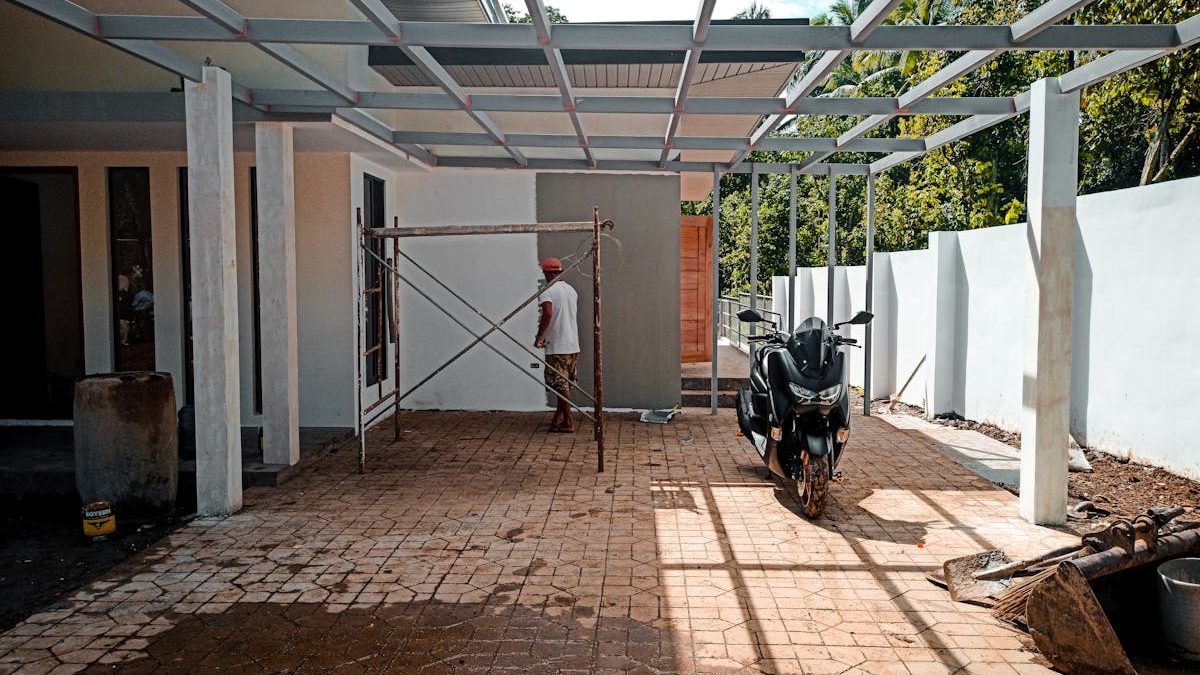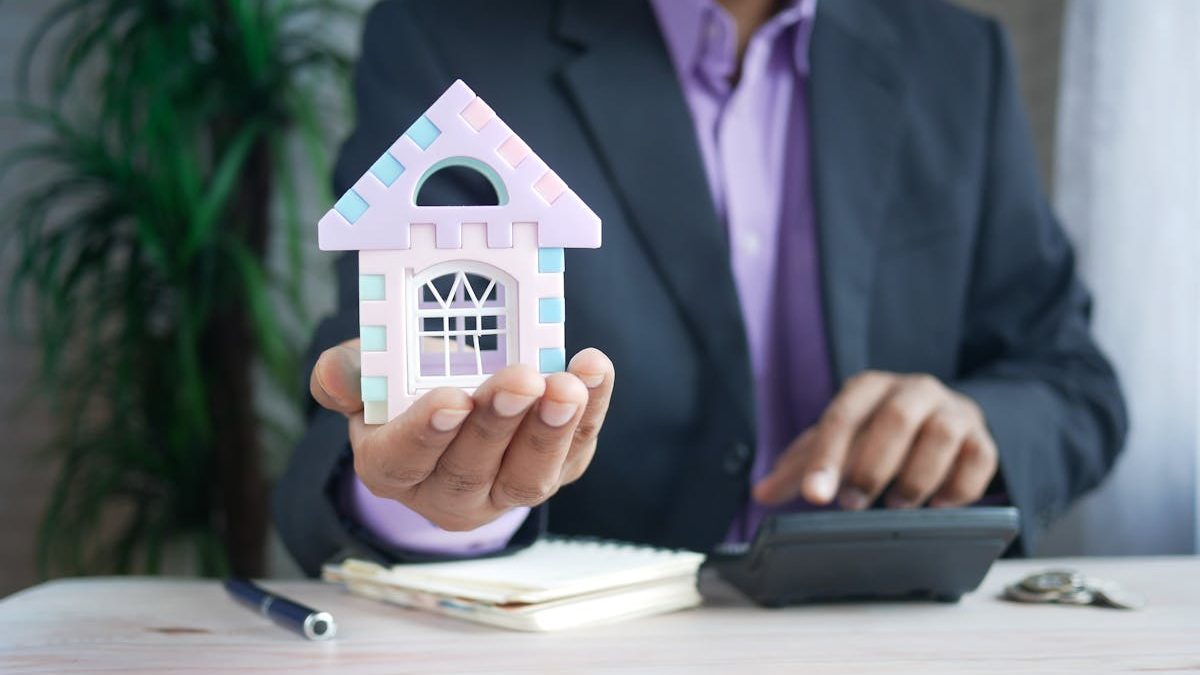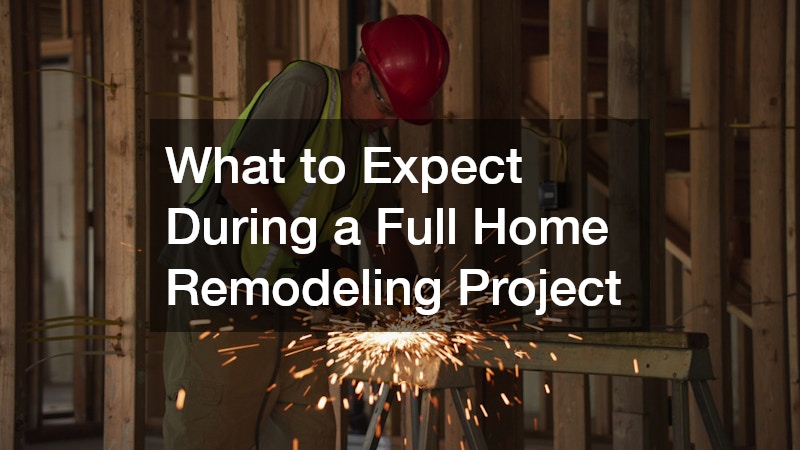
How To Build and Obtain a Mortgage for Off Grid Houses
In a world where sustainability and self-sufficiency are gaining popularity, off-grid living has become a preferred lifestyle choice for many people. Off-grid homes, also called self-sufficient homes, are designed to operate independently from conventional public utilities. These homes harness the sun, wind, or water power to generate electricity. It also involves sourcing water independently and living sustainably using natural materials, low waste, and emissions.
By utilizing renewable energy, off-grid homeowners can significantly reduce their carbon footprint and environmental impact. However, building a home that operates offgrid can be overwhelming. The good news is that you can access financing to build your dream home. This article discusses in-depth how to obtain a mortgage for an off-grid house. Let’s get started.
Planning and Building an Offgrid House

Building a mortgage off-grid house requires meticulous planning and strategic construction techniques. This section will explore the important factors of the planning and building process. Let’s jump right in.
1. Budget for the Project – How Much Does It Cost to Build the Grid House?
Building mortgage off-grid houses is a unique task, even though the general process is similar to building a regular house. Start by budgeting for land and building your home. According to the United States Department of Agriculture, the average U.S. farmland cost is $3800 per acre.
Besides purchasing land, the cost of building your home depends on how luxurious you want your off-grid home to be. According to U.S News and World Report, the average cost to build an off-grid tiny house in the country is about $45,000, with most people spending between $30,000 and $60,000. On the other hand, if you want state-of-the-art, eco-friendly appliances in your modern kitchen, the kitchen alone could cost as much as a smaller home. It is crucial to establish your budget and carefully select materials and fit-outs that align with it.
Your budget should go beyond land purchase and house construction costs. You need to factor in the systems you’ll use for power and waste disposal. Remember, you won’t be connected to a public utility. So, you might need to dig a maintenance hole and purchase a power-generating turbine if you decide to source energy from wind or water.
Will you power your heating and lighting needs using solar? If yes, budget for solar panels, including expert installation. A commercial roofing company can help install solar roofs. Don’t forget about service charges from inspectors. The point isn’t to scare you but to help you prepare to avoid surprises.
2. Select a Proper Location
Location is significant when constructing a mortgage off-grid house. An ideal place should be near water availability and solar exposure. Contact well pumpers and installers to determine whether drilling wells and putting septic systems in your desired location is feasible. They can offer insightful information on the area’s topography, water accessibility, and site suitability. Simply put, they will provide informed advice on whether your location of choice is ideal for constructing an offgrid home.
Moreover, off-grid homes need a well-designed and robust driveway or access road to accommodate vehicles and provide access to the property. Paving companies can evaluate the terrain for your off-grid driveway and offer professional advice on the best materials and construction techniques. They can assist you in selecting functional, long-lasting materials, such as gravel, asphalt, or permeable pavers, that support your mortgage for off-grid houses.
3. Think About Water Supply
Going off grid means disconnecting public utilities, including water supply. Securing a clean and reliable water supply for your off-grid home is essential, but it doesn’t have to break the bank. If your property already boasts a natural source of fresh water that you can treat and utilize, you may spare the expense of drilling a well. However, in cases where drilling is necessary, it’s essential to understand the associated costs. According to Forbes, homeowners can expect to invest around $5,625 on well drilling, with typical job expenses ranging from $3,000 to $9,000.
Ideally, you should erect water tanks and gather rainwater. Additionally, you need proper storage for wastewater. Part of the sustainability plan is to recycle wastewater and proper disposal. This is where septic tanks come in handy. Hire professional septic companies for septic tank installation. Reputable septic system contractors ensure the waste and sewer fumes are adequately contained to prevent potential health problems..
4. Have an Effective Source of Energy

Offgrid home is about using alternative sources to power your home. There is no better way to achieve this goal than harnessing the incredible power of solar energy. Solar power systems excel in both effectiveness and ease of installation, making them the ideal solution for powering your off-grid home. To put this into perspective, generating power from wind might be capital-intensive, albeit a clean energy source. You want a power supply you can afford in the long run, right?
With solar energy, you tap into a renewable energy source and eliminate reliance on the costly national electric grid. Solar systems generate power without pollution, making it a responsible choice for off-grid living. With the sun’s abundant power as an inexhaustible energy source, installing solar panels enables you to reduce your environmental impact. It also helps you save money by combatting the ever-increasing costs of the national grid supply.
Additionally, solar energy systems deliver remarkable energy efficiency and savings throughout the year, even in climates with less sunshine or colder temperatures. However, a backup solution like a gasoline-powered generator may be necessary in case of system issues.
5. Build Efficient Off Grid Infrastructure
When building an off-grid infrastructure, address the specific challenges of installing water heaters, managing septic systems, and drilling wells. Engage professionals with experience working with off-grid systems, such as well pumps, a septic tank pumper, and plumbing. They can help you create an independent water system, effective trash disposal, and energy-saving fixtures. By relying on their experience, you can have peace of mind knowing that they’ll install your off-grid system correctly.
Professional septic tank cleaning services are also valuable for maintaining a septic system. They provide the essential services of cleaning out your septic tank and also offer guidance on how to prolong the lifespan and enhance the efficiency of your septic pumping system. By seeking their expertise, you can ensure that your septic system remains in optimal condition for years.
6. Install a Waste Management System
Mortgage off-grid houses requires an effective and energy-efficient waste management system. Offgrid involves managing waste through reuse and recycling. Remember, designing a waste disposal system is a complex task that requires a professional plumber and technicians.
Ideally, you should hire a reputable waste management company because poor waste disposal poses serious health risks. The experts will guide you in proper trash disposal methods, recycling practices, and composting systems that align with your sustainable off-grid lifestyle. They also help you design a waste management plan that minimizes environmental impact and maximizes sustainability.
7. Use Alternative Sources to Heat Your Home
When it comes to heating your off-grid home, nothing surpasses the undeniable advantages of a wood stove. These stoves perform remarkably well, adding a touch of captivating elegance to any living space. With the ability to function as cooktop surfaces, wood stoves offer a multifunctional solution that ensures optimal energy efficiency and minimal waste during the winter months. The ideal wood stove for your off-grid home depends on various factors, including room size, venting configuration, and efficiency ratings. Other efficient heating methods ideal for offgrid homes are biomass boilers, electric heat pumps, geothermal heat pumps, and propane heaters.
How to Obtain a Mortgage for Off Grid Houses
As mentioned, building an offgrid home might initially be capital-intensive. For instance, you need to install power-generating systems. For this reason, many offgrid homeowners go for mortgages. When obtaining a mortgage, you must consider several important factors. These considerations can significantly impact your ability to secure a loan and determine the terms and conditions of your mortgage.
Consider Lenders Specializing in Offgrid Mortgage
A mortgage off-grid house is financed differently than a typical home mortgage. Off-grid houses are relatively less popular, making getting a loan more challenging. Look for lenders who focus on green and sustainable lending, as they are more likely to comprehend the peculiar needs of off-grid living. They can provide helpful advice throughout the process and may have specific loan solutions designed for off-grid residences.
To get the best mortgage for your circumstances, compare interest rates, terms, and criteria. According to Off Grid Home, mortgages on offgrid homes usually attract 1% more. However, specific lenders might provide off-grid property-specific programs with advantageous terms and conditions.
Establish Creditworthiness
Good credit is essential for getting a mortgage for off-grid house. Lenders will have more faith in you if you make on-time payments, reduce debt, and maintain a good credit score. Put financial responsibility first to give yourself a leg up when applying for a mortgage. By making consistent payments and limiting your credit utilization, work to reduce existing debt and raise your credit score.
Showcase Your Energy Independence
Demonstrating your commitment to energy independence can significantly enhance your prospects of securing a mortgage for off-grid house approval. Take the opportunity to showcase your off-grid infrastructure by providing detailed blueprints to prospective lenders. Emphasize critical features such as solar panels, tankless water heater installation, and other energy-saving components. By illustrating the long-term financial advantages of these systems, you can persuade lenders of the viability and value of your off-grid investment. To enhance your application, you can also emphasize the following.
- Cost savings: Provide specific figures and estimates to illustrate the potential cost savings associated with your energy-independent systems. Include calculations on reduced utility bills and the return on investment over time. This data-driven approach can reinforce the financial benefits of your off-grid home and make a compelling case to lenders.
- Include performance data: Gather performance data from your energy-saving components, such as solar panels or energy-efficient appliances. Showcase their effectiveness in generating electricity or reducing energy consumption. Actual evidence of their performance and reliability will add credibility to your application.
- Environmental impact: Besides financial advantages, explain the positive environmental impact of your off-grid lifestyle. Demonstrate how your energy-efficient systems contribute to a smaller carbon footprint and reduced reliance on fossil fuels. Lenders who prioritize sustainability may be particularly interested in supporting environmentally friendly projects.
- Backup systems: Address concerns lenders may have about the reliability of off-grid living by highlighting your backup systems. Describe how you’ve incorporated energy storage solutions, backup generators, or alternative water sources to ensure resilience and continuity even in adverse conditions. It demonstrates your thoughtful planning and mitigates potential risks associated with off-grid living.
By presenting a comprehensive picture of your energy independence, financial benefits, sustainability, and backup systems, you can significantly improve your chances of obtaining mortgage approval for your off-grid home.
Craft a Comprehensive Loan Application

When venturing into off-grid living and seeking a mortgage for your off-grid house, ensure you present a comprehensive loan application. An ideal application entails providing extensive documentation that outlines the specific details of your off-grid dwelling project. Include essential components such as a thorough cost breakdown, energy efficiency certification, and architectural blueprints. You demonstrate your unwavering commitment and significantly enhance the likelihood of mortgage approval. Offering precise and detailed information allows lenders to evaluate the value and viability of your off-grid endeavour.
Interact with Mortgage Experts
Engage the assistance of a mortgage for off-grid house experts who focus on off-grid residences. The experts can also walk you through the mortgage application process, help you with the paperwork and offer advice based on your circumstances. Their knowledge will speed up the procedure and improve your chances of getting a mortgage for your off-grid home. Mortgage experts who have dealt with off-grid residences will better understand the unique requirements and obstacles involved.
Build a Sustainable Future with Mortgage for Off Grid Houses

Off-grid home construction and mortgage finance demand meticulous planning, teamwork with professionals, and investigation of specific financing options. However, you can overcome the difficulties by working with the right experts. Attain a meaningful lifestyle by embracing sustainability and self-sufficiency, and pave the path for a more environmentally friendly future. Take the plunge into off-grid living to explore the possibilities for a sustainable future.



